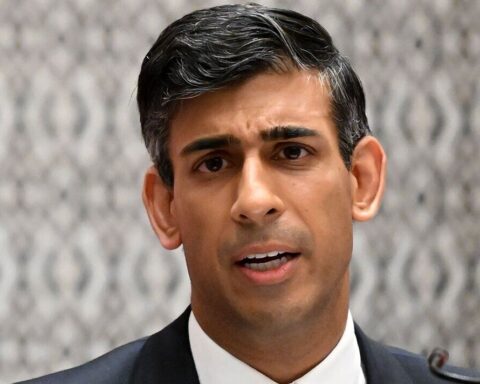LONDON (Parliament Politics Magazine) – Conservative party members’ postal ballots for the leadership election have been delayed as a result of security concerns.
The head of membership of Conservative Party stated in a letter to members, Sky News saw, that postal votes would come a bit later than what was originally said because they had taken some time to add some additional security to the procedure.
The email informs members that they should now receive their postal ballots by Thursday, August 11. Members were previously expected to receive their ballots to choose their future leader—and next UK prime minister—this week.
The headquarters of the party could only describe it as a minor delay and couldn’t give any further information.
A spokesperson said that they had opted to strengthen security surrounding the voting process after consulting with the NCSC [National Cyber Security Centre] during this process. Ballot packs would begin to be sent to eligible members in the current week.
A spokesperson for the NCSC said that the NCSC worked closely with all parliamentary political parties, local governments, and MPs to give cyber security advice and support. Protecting UK democracy and electoral processes was a priority for the NCSC.
As would be expected from the national cyber security body of the UK, they offered the Conservative Party advice on security issues related to online leadership voting, they added.
In addition, the letter from the party advises that voting more than once will be considered “an offence” and that anyone found to have done so will “have their party membership withdrawn.”
Members of the Tory Party may vote online or by mail, but the party acknowledged that it had to forgo plans to let voters change their minds about the next leader’s choice later in the election due to security concerns.
Members were only allowed to vote once, but if a “duplicate” vote was registered, the second one would be counted, according to the leadership election procedures established by the 1922 Committee of backbench MPs and the Conservative Party board.
Truss’ allies were believed to be apprehensive of the possibility the rule would work in her rival Sunak’s favour, so might be happy with the change. Although the delay could help by giving him more time to present his case.
As Mr. Sunak struggles to gain ground during a crucial week in the race for control of Number 10, Ms. Truss appears to have increased her advantage over him in the leadership competition, according to a fresh poll released earlier on Tuesday.
The foreign secretary currently leads the battle for the party’s top job by 34 points, according to the most recent YouGov poll of Conservative members conducted for The Times newspaper. Sixty percent of party members now say they will vote for Ms. Truss to become the next prime minister.
This is only 26% compared to the former chancellor Mr. Sunak.
However, the poll was conducted over the past five days, before Ms. Truss made a significant U-turn on a public sector pay policy that infuriated the party.






